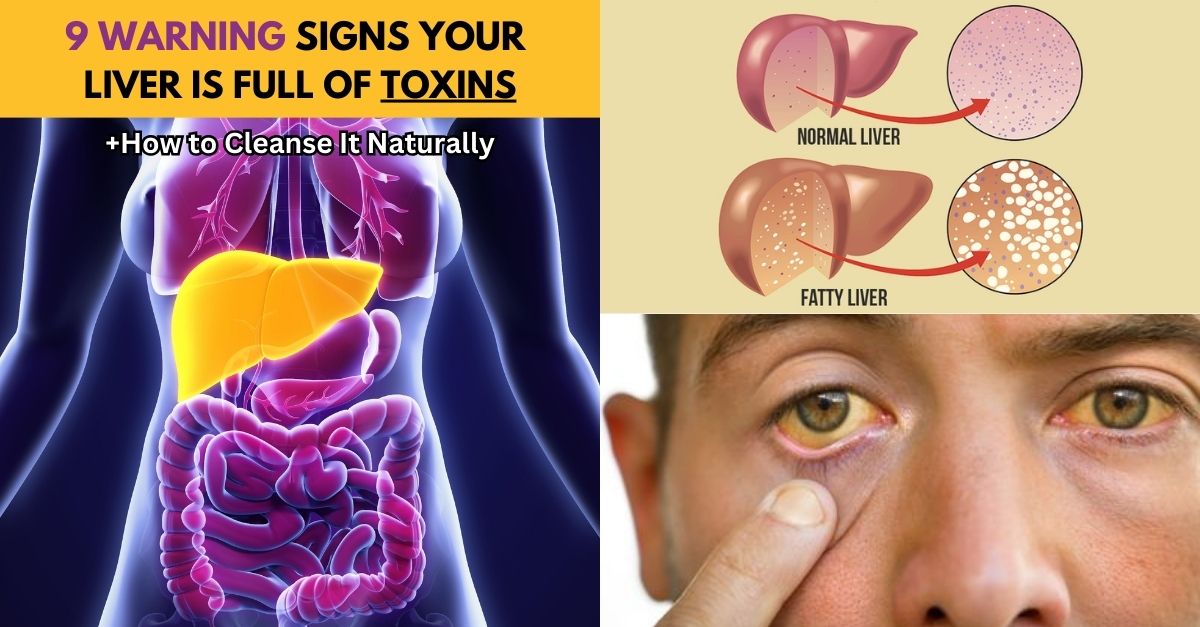The liver is a vital organ responsible for numerous essential functions in the body, including detoxification, metabolism, and hormone regulation. When the liver becomes overburdened with toxins, its efficiency declines, potentially leading to weight gain and other health issues. It’s crucial to recognize the signs of a sluggish liver and take steps to support its function.
What Does the Liver Do?
The liver plays a key role in metabolizing fats, carbohydrates, and proteins. It breaks down fats to produce energy, stores and regulates blood sugar, and processes amino acids to create vital proteins. It also detoxifies harmful substances, converting them into forms that can be safely excreted.
PubMed Health explains the liver’s functions in detail:
- Fat metabolism: Liver cells break down fats and produce energy. They also produce bile, which helps digest and absorb fats.
- Carbohydrate metabolism: The liver regulates blood sugar levels by storing or releasing sugar, depending on the body’s needs.
- Protein metabolism: The liver converts ammonia, a toxic byproduct, into urea, which is excreted through urine.
- Storage of vitamins and minerals: The liver stores essential nutrients like vitamins A, D, E, K, and minerals like iron and copper, releasing them when needed.
Since the liver also plays a role in hormone production and regulation, ensuring its health is crucial to maintaining overall well-being.
Signs Your Liver is Struggling with Toxins
Here are the key signs that your liver may be overwhelmed and struggling to function efficiently:
- Appetite loss
- Nausea and vomiting
- Dark-colored urine
- Yellowish skin or eyes (jaundice)
- Abdominal pain or discomfort
- Swelling in the abdomen, legs, or ankles
- Pale or tar-colored stool
- Easy bruising
- Chronic fatigue
Additional risk factors for liver dysfunction include obesity, diabetes, heavy alcohol consumption, exposure to chemicals, and high triglyceride levels. Liver-related issues can also manifest as digestive problems, difficulty losing weight, blood sugar imbalances, hormonal imbalances, and skin conditions.
Natural Supplements to Support Liver Health
To improve liver function and help it detoxify the body, consider incorporating the following natural supplements into your routine:
- Dandelion (Taraxacum): Dandelion is a powerful herb known for its anti-inflammatory and antioxidant properties. It supports bile secretion, aids digestion, regulates blood sugar, and helps prevent liver-related conditions such as hepatitis and anorexia.
- Milk Thistle: Milk thistle contains silybin, which is highly beneficial for treating liver conditions like cirrhosis and hepatocellular carcinoma. It reduces liver fat accumulation, promotes cell regeneration, and helps combat insulin resistance and oxidative stress.
- Green Tea: Rich in antioxidants, green tea lowers the risk of liver cancer and helps protect the liver from fatty liver disease. Its key compound, EGCG, is known for its anti-inflammatory properties and its ability to slow the progression of liver fibrosis.
- Phosphatidylcholine: As a vital building block for cell membranes, phosphatidylcholine supports liver cell regeneration and protects the liver from damage caused by toxins and fatty buildup.
- Alpha Lipoic Acid (ALA): ALA is known as a “universal antioxidant” due to its ability to enhance the effectiveness of other antioxidants in the body. It plays a key role in the liver’s detoxification process, helping it neutralize harmful substances more efficiently.
See also: 5 Surprising Triggers of Autoimmune Diseases You Might Be Overlooking
Lifestyle Tips for Liver Health
In addition to using supplements, adopting the following healthy habits can significantly improve liver function:
- Maintain a nutrient-rich diet: A diet rich in fruits, vegetables, and whole grains provides essential nutrients that support liver detoxification.
- Exercise regularly: Physical activity boosts circulation and helps the liver metabolize fats more effectively.
- Manage stress: Chronic stress can lead to inflammation, which may further burden the liver.
- Stay hydrated: Drinking enough water helps flush toxins from the body and aids liver function.
By recognizing the signs of liver dysfunction and taking steps to support this critical organ, you can improve your overall health and prevent weight gain and other related issues.




